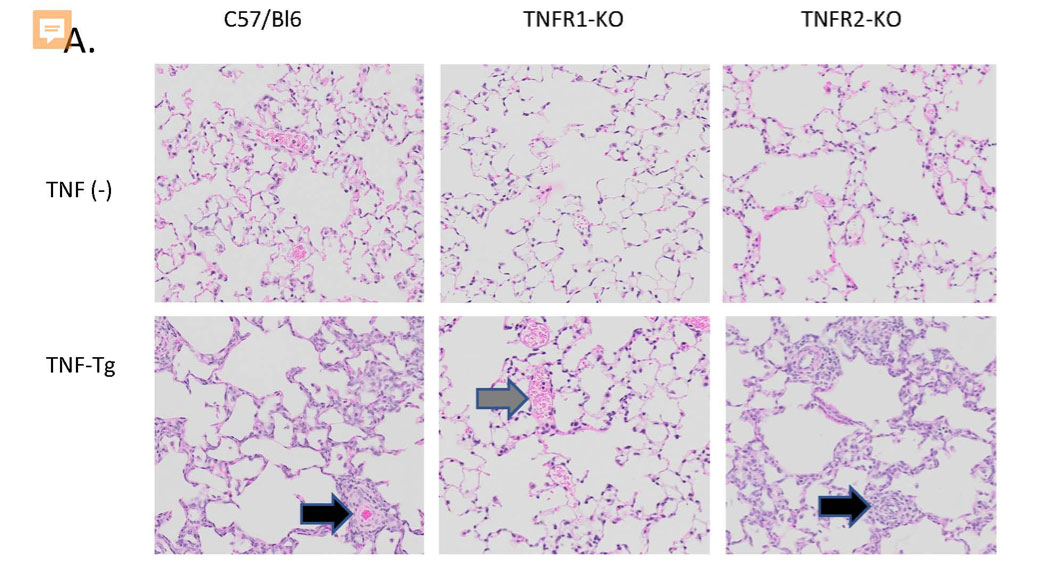Pathogenetic Role of TNF-a and TNF Receptors in Experimental Scleroderma Associated Arterial Hyperte
Pulmonary arterial hypertension (PAH) is a severe cardiopulmonary disease that leads to right heart ventricular dysfunction and premature death. Amongst patients with PAH, PAH is seen in 10-12% of patients with systemic sclerosis (SSc-PAH) and represents the second most common etiology of PAH. We have recently discovered that female tumor necrosis factor alpha transgenic (TNF-Tg) mice, an established model of inflammatory arthritis display a progressive pulmonary vasculopathy driven by mesenchymal cells and can be reversed by anti-TNF therapy. To better understand the mechanisms by which TNF and TNF receptor signaling drives this process, we will determine TNF’s role in driving abnormal endothelial cell phenotypes in PAH using transgenic mouse models including TNFR1 and TNFR2 knockout mice. We will also perform single cell RNA sequencing of flow-sorted pulmonary endothelial and mesenchymal cells and assess the contribution of TNF receptor signaling the in the modulation of PAH pathology in cell culture experiments.
